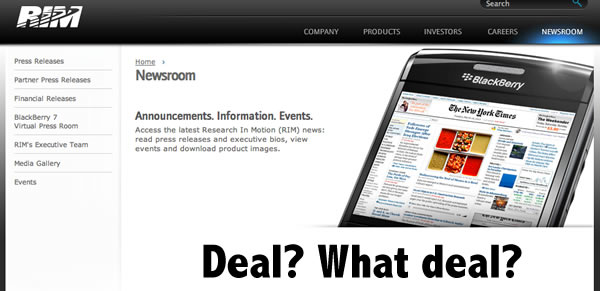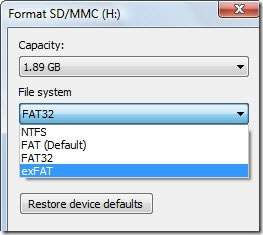
 Back when I worked at Microsoft Canada, we’d often pay visits to the nearby city of Waterloo, home of the world-famous University of Waterloo and its killer computer science and engineering programs and RIM. We’d occasionally meet up with some of the RIM folks, either formally or casually, and at some point, one of the RIMmers would say “Someday, we shall be one”. This shouldn’t be news to anyone who hangs out in Waterloo; the “Microsoft should buy RIM” idea has been floating around since before the iPhone crashed the party and left with all the cool kids.
Back when I worked at Microsoft Canada, we’d often pay visits to the nearby city of Waterloo, home of the world-famous University of Waterloo and its killer computer science and engineering programs and RIM. We’d occasionally meet up with some of the RIM folks, either formally or casually, and at some point, one of the RIMmers would say “Someday, we shall be one”. This shouldn’t be news to anyone who hangs out in Waterloo; the “Microsoft should buy RIM” idea has been floating around since before the iPhone crashed the party and left with all the cool kids.
When the headline Microsoft Signs Licensing Agreement with Research in Motion appeared earlier today, some tech writers had to make it very clear that this licensing deal “isn’t what you think”. It’s a licensing agreement for the exFAT file system, the successor to FAT, whose 32-bit file allocation table (from which the FAT acronym comes) limits filesizes to 4GB. exFAT-formatted storage will appear in “some BlackBerry models”. If you bounce files back and forth between Macs and Windows boxes on external drives or naked drives and “toasters”, exFAT’s a great way to format them, as the modern versions of those OSs read exFAT “right out of the box”. exFAT was designed with Flash drive technology in mind, requiring less processor power and memory.
The fact that this deal appears in an article in Microsoft’s News Center but doesn’t appear at all on RIM’s Newsroom page is very telling. For Microsoft, it’s a win: another licensee and more income, and someone’s going to get a nice bonus at the end of the fiscal year. For RIM, it’s a nice tech tweak, but certainly nowhere as splashy as the other mobile vendors’ recent announcements, and nothing to soothe some presumably agitated investors.